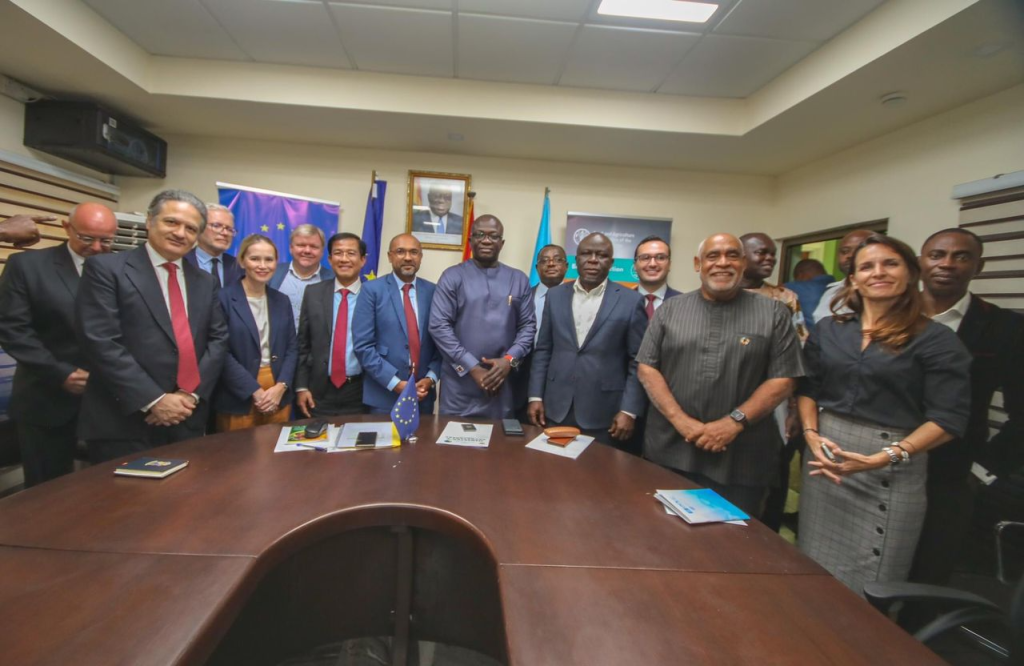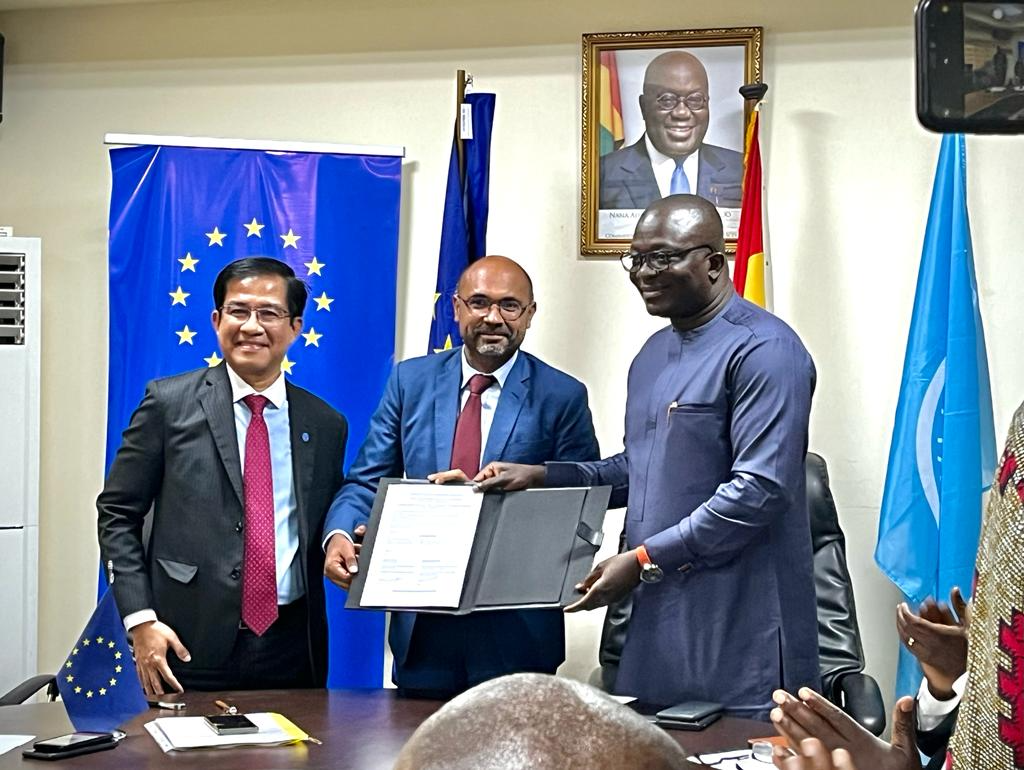By Doreen Ampofo
Government in collaboration with the European Union and Food and Agriculture Organization, FAO has launched a 10 million Euro project to address food security in Northern Ghana. More than 50 thousand people will benefit from the three year project which will support vulnerable populations.
The EU-funded, FAO-led project aims to ensure more economically sustainable and inclusive food systems by empowering communities to build resilient and profitable food production systems; reinforce environmental sustainability of food systems by promoting practices that protect the environment and conserve natural resources; as well as enhance social sustainability and gender responsiveness of food systems by ensuring equitable access to food and nutrition, focusing on women and vulnerable populations.
It finally seeks to improve governance and institutional sustainability of food systems by strengthening governance structures to ensure the long-term viability of food systems.
According to the EU, this vital financial contribution reaffirms the importance of international solidarity in addressing global food security challenges aggravated by Russia/Ukraine war.
The EU ambassador to Ghana, Irchad Razaaly said:
“This 10 million Euro emergency measure has been mobilised in record time and represents the commitment and solidarity of the EU and its Member States in the face of rising cost of food and to safeguard food security, and transitioning to more resilient food systems in Ghana.”
For the FAO Deputy Regional Representative for Africa and Representative in Ghana, Yurdi Yasmi, the joint collaboration between FAO, the European Union, and the Government of Ghana shows our commitment to rural families in Ghana and ending hunger and malnutrition while supporting the transition to more sustainable agrifood systems.

The allocated funds will primarily focus on the sustainable development of crucial agribusiness value chains, including maize, millet, sorghum, groundnut, vegetables (tomatoes), poultry, and piggery.
These efforts complement the Government’s initiatives, such as Planting for Jobs Phase 2, to mitigate the adverse impacts of rising food, fertilizer, and fuel prices in vulnerable areas, in order to help alleviate poverty, hunger and malnutrition.
The Minister of for Food and Agriculture Bryan Acheampong expressed government’s appreciation for the support especially at a time when the need to refocus the country’s food systems to deliver on nutrition and resilience is being consummated into phase two of the Planting for Food and Jobs programme.
Over the three agricultural seasons, the EU-funded project aims to support at least 10,000 households, benefiting approximately 6,000 maize farmers, 2,400 millet farmers, and 4,200 sorghum farmers in targeted districts. Women, youth, and value chain actors will receive capacity-building support, access to post-harvest technologies, and training on climate change adaptation, market access, financial services, and pest and disease management.














